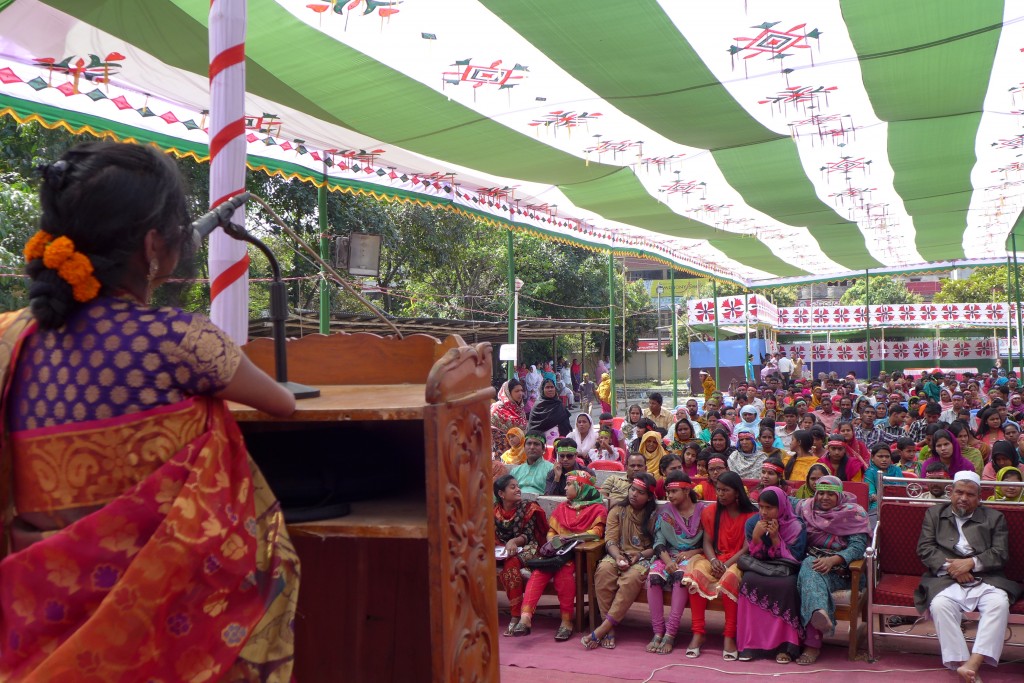Last week I went to a disability convention in Rajshahi, a vibrant city close to the Indian border and on the banks of the river Padma. A convention means that we had speeches. And then more speeches. All Day. In the evening there was a cultural event with dancing and songs and skits but by that time I had been so speechified I went home.
On the one hand this was a bit boring and I didn’t follow what everyone said. But on the other hand this was awesome and shows how much has been achieved by disabled people in Rajshahi.
The reason we had so many speeches is because so many important people came. As well as two Members of Parliament, there were plenty of government officials, including the divisional commissioner and representatives from the city authority and key departments. Throw in a few reporters, people from the university and chamber of commerce and all together you have excellent representation of the key players in this part of Bangladesh.
It’s not just the turn-out that’s important. The guests were all positive about disabled people, and about making change for them. They had an idea of what the existing programs were and they all had suggestions of more work to be done in the future. In a place where disabled were people routinely stigmatised and disability ignored by the authorities it is a real sign of achievement to see such goodwill and commitment.
So who did this and how did it happen? The positivity here is partially due to a sea-change in Bangladesh, where disability is being taken more positively across government and society. The Prime Minister is positive, and that makes government positive too. Attitudes are changing across society, and now when you ask people about whether disabled people should have more of a place then they are likely to agree.
But the positivity in Rajshahi is also a lot to do with the work of disabled people themselves. This event was largely organised by the district-level confederation of Disabled People’s Organisations, Zela Badhon Protibondi Songsta and its member DPOs. Alongside all the local dignitaries, disabled leaders spoke about their experiences and made demands to achieve their rights.
Supported by an international NGO, Action on Disability and Development, these DPOs now have 3000 or so members in Rajshahi. They are active, they are empowered and have established close relationships with the local authorities. They have transformed the lives of many of their members and are working for more. It’s with honour that I can say many of them are my friends, and that their work at the local level has been an inspiration to me since I first came to Rajshahi in 2009. Maybe 600-800 people were present at this event, and many of them were disabled people that came from these groups.
One of the key parts of my work is advocating for more participation of people with disabilities in decision-making. Disabled people’s organisations are a key part of this – they can advise and support other organisations on how to include disabled people. Interestingly the DPOs in Rajshahi are very much performing these roles, but they haven’t really incorporated this into their self-definition. They see themselves as part of the work of ADD – the organisation that helped them start and grow, and continues to support them. For me that hides what is the real achievement in Rajshahi – that disabled people have achieved a whole range of positive changes through coming together into organisations they themselves lead. Their fight is for representation and participation and it’s a fight that they’re winning.


